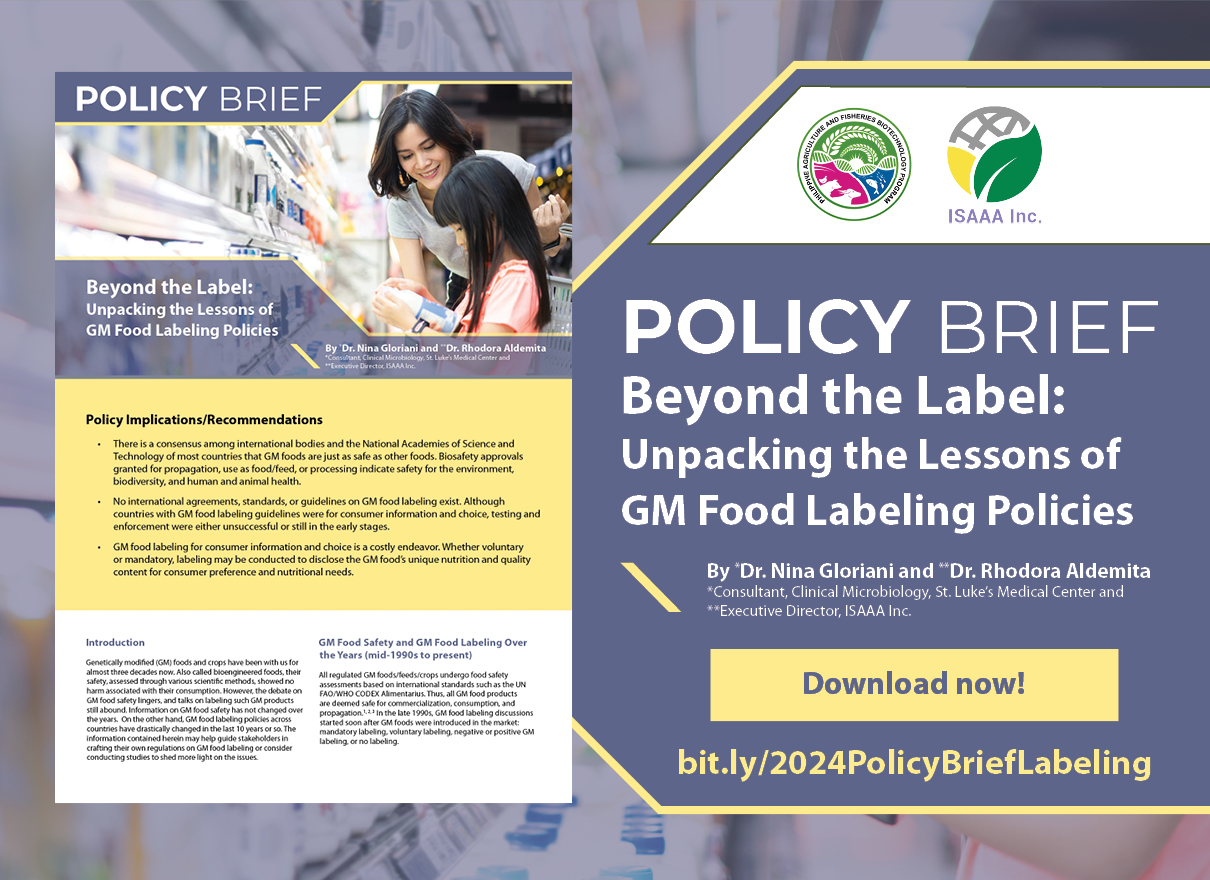ISAAA Inc. and DA Biotech Program Release Fifth Issue of Double Helix Magazine

Double Helix, the Philippines’ first agricultural biotechnology (agbiotech) magazine for senior high school (SHS) students, now has its fifth issue, focusing on biotech products for consumers. Developed by ISAAA Inc., through the Know the Science project with the Philippine Agriculture and Fisheries Biotechnology Program of the Department of Agriculture (DA Biotech Program), this eight-page magazine is filled with illustrated stories, infographics, and activities to promote knowledge and enhance scientific literacy among young people.
Blog Archive
Bt Cotton Shows Adaptability in Ilocos Region
Closing the STEM Gap: Empowering Women in Science
Leaders of Change: The Legacy of Filipino Biotech Champions
Biotech Breakthroughs: New Products of Biotechnology for Consumers
The First Decade of CRISPR: Advances and Outlook
Gene Editing Made Simpler for the Youth
Science Speaks is ISAAA Inc.'s official blog. Weekly blog articles, authored by ISAAA writers, partners, and invited contributors, aim to help share, disseminate, and promote scientific knowledge and its vital role in achieving global agricultural sustainability and development. Your support to Science Speaks will help us achieve this goal. You can help us by donating as little as $10.













